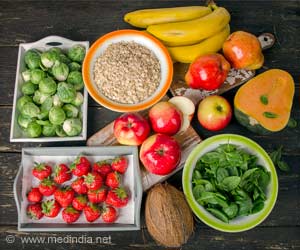A new study suggests that while vegetarian diets lower mortality risk, a pesco-vegetarian diet offers the best protection for the very elderly.
- Vegetarian diets lower the risk of all-cause mortality, particularly in middle-aged men
- Pesco-vegetarian diets offer the highest protection against death in the elderly
- Neurological risks slightly increase for vegetarians in their 80s, especially for stroke and dementia
Cause-specific and all-cause mortalities in vegetarian compared with those in nonvegetarian participants from the Adventist Health Study-2 cohort
Go to source).
Elderly people who follow a pesco-vegetarian diet live longer and have an 18% lower risk of death than their non-vegetarian counterparts. #nutritionscience #longevity #medindia’
Which Diet is Best for the Elderly?
Researchers at Loma Linda University Health discovered that vegetarian diets are related to a lower risk of all-cause mortality and several cause-specific mortalities, particularly among men and middle-aged people. However, very elderly vegetarians had somewhat greater risks of neurological disorders such as stroke, dementia, and Parkinson's disease. Despite this, the pesco-vegetarian diet continues to provide a slight but significant advantage over other vegetarian and non-vegetarian diets, including in the elderly.Vegetarian Diet is Healthier During Middle-Aged Years
According to Gary Fraser, MBCHB, Ph.D., distinguished professor at Loma Linda University School of Public Health and principal investigator of the study, a vegetarian diet appears to offer protection from the risk of death through middle-aged years. However, when people reach their 80s, the overall advantage appears to disappear for those adhering to a strict vegetarian diet."These increased risks of neurological conditions among vegetarians in their 80s weren't huge, but something is going on there that we shouldn't ignore if we wish the vegetarian advantage to continue for all vegetarians in their later years," Fraser informed us.
The study, Cause-specific and all-cause mortality in vegetarian relative to non-vegetarian adults from the Adventist Health Study-2 cohort, was published in the American Journal of Clinical Nutrition.
How Different Types of Diets Affect the Risk of Death
The study used data from the Adventist Health Study-2, a large cohort of almost 96,000 Seventh-day Adventists who lived in the United States and Canada during the program's baseline enrollment from 2002 to 2007, with follow-up until 2015. That group's data has been used in a variety of research on health, sickness, and mortality throughout time. This study examined data from about 88,000 individuals and around 12,500 deaths within the study group. Dietary data were gathered via a questionnaire and divided into five categories: non-vegetarian, semi-vegetarian, pesco-vegetarian, lacto-ovo-vegetarian, and vegan.Fraser stated his research discovered that Adventist vegetarians had a 12% lower risk of death than Adventist non-vegetarians. Study participants who followed a pesco-vegetarian diet had an 18% lower risk of death. Those who followed a lacto-ovo-vegetarian diet (containing dairy and eggs) were 15% less likely to die. Vegans had a less than 3% lower risk of death, although male vegans performed significantly better than non-vegetarians, as opposed to females.
"Overall, this is some of the clearest data that American vegetarians are greater protected from premature death than non-vegetarians," Fraser remarked.
Reference:
- Cause-specific and all-cause mortalities in vegetarian compared with those in nonvegetarian participants from the Adventist Health Study-2 cohort - (https://www.sciencedirect.com/science/article/abs/pii/S000291652400652X)
Source-Medindia
















